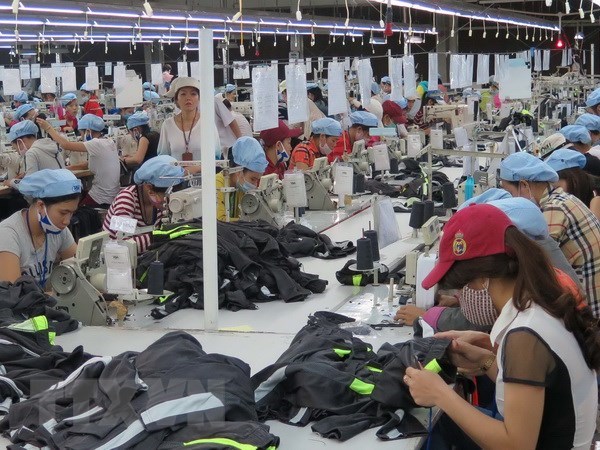ID :
497652
Tue, 07/10/2018 - 04:26
Auther :
Shortlink :
https://oananews.org//node/497652
The shortlink copeid
Vietnam among top five global textile exporters

Hanoi, July 10 (VNA) - Vietnam has made it onto the list of the world’s five biggest textile exporters and producers, with textile and garment export turnover hitting 16 billion USD in the first half of 2018, up more than 14 percent year-on-year.
Experts said Vietnam has many opportunities to expand its markets in the field thanks to free trade agreements signed by the country with partners.
The signing of the European Union - Vietnam Free Trade Agreement (EVFTA) in 2018 is hoped to help Vietnam's textile and garment industry make deeper inroads into this market.
BESIDES, the US is likely to increase import tariffs on textiles and garments from China, and this will create favourable conditions for Vietnamese enterprises to expand and increase their export market share to the US - a key market for Vietnam’s textile products.
According to Vu Duc Giang, President of the Vietnam Textile and Apparel Association (VITAS), thanks to the world economy in 2018 is expected to achieve higher growth than 2017, and the national macro economy remains stable, the textile industry reported positive results in the last two quarters.
In the period, the production of fabrics from natural yarn was estimated to reach 274.6 million sq.m, a year-on-year rise of 9.7 percent, while the production of synthetic fabrics and clothing were estimated at 525.9 million sq.m, and 2,305 million of clothing units, up 21.1 and 10.4 percent, respectively, over the same period last year, Giang said.
Exports to key markets such as the US, member countries of the Comprehensive and Progressive Agreement for Trans-Pacific Partnership (CPTPP), the EU, the Republic of Korea (RoK), China and ASEAN posted stronger growth than the Jan-June period of 2017.
However, Giang said the sector will still face many difficulties in the rest of 2018 and the next few years amid stagnant consumption demand and fierce competition in the global textile market.
Global textile and garment demand is forecast to increase only 1 - 2 percent, he noted.
Another difficulty is that the US and the EU still levy 17.5 percent and 9.6 percent duties on Vietnamese textile products, respectively, while those for other developing countries such Cambodia and Myanmar are zero percent.
Giang said to help textile and garment enterprises boost their exports, VITAS will continue to implement trade promotion programmes and introduce measures to take advantages of opportunities provided by the CPTPP and the EVFTA.
It will coordinate with the Ministry of Industry and Trade to hold training courses on how to respond to the 4th industrial revolution, helping enterprises devise plans to promote sustainable development, Giang added.
Enterprises should focus on training human resources to meet the digitalisation requirements of some stages in production, he noted.
Besides the main export markets such as the US, EU, Japan, and the RoK, Vietnamese textile and garment firms are also focusing on exploiting other markets like China and ASEAN.
In 2017, the garment-textile sector raked in 31.2 billion USD from exports, a year-on-year rise of 10.23 percent.
In the year, Vietnam’s garment-textile exports to major markets like the US, the EU, Japan, the RoK and Russia increased by 7.2 percent, 9.23 percent, 6.1 percent, 11.8 percent and 56 percent, respectively./.





